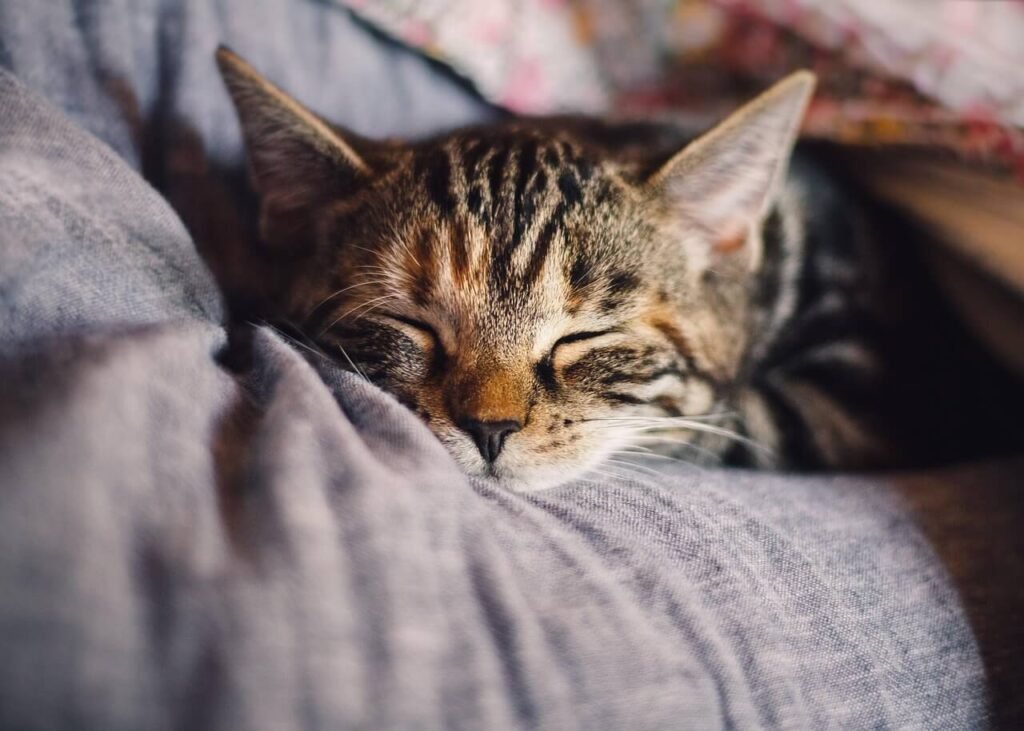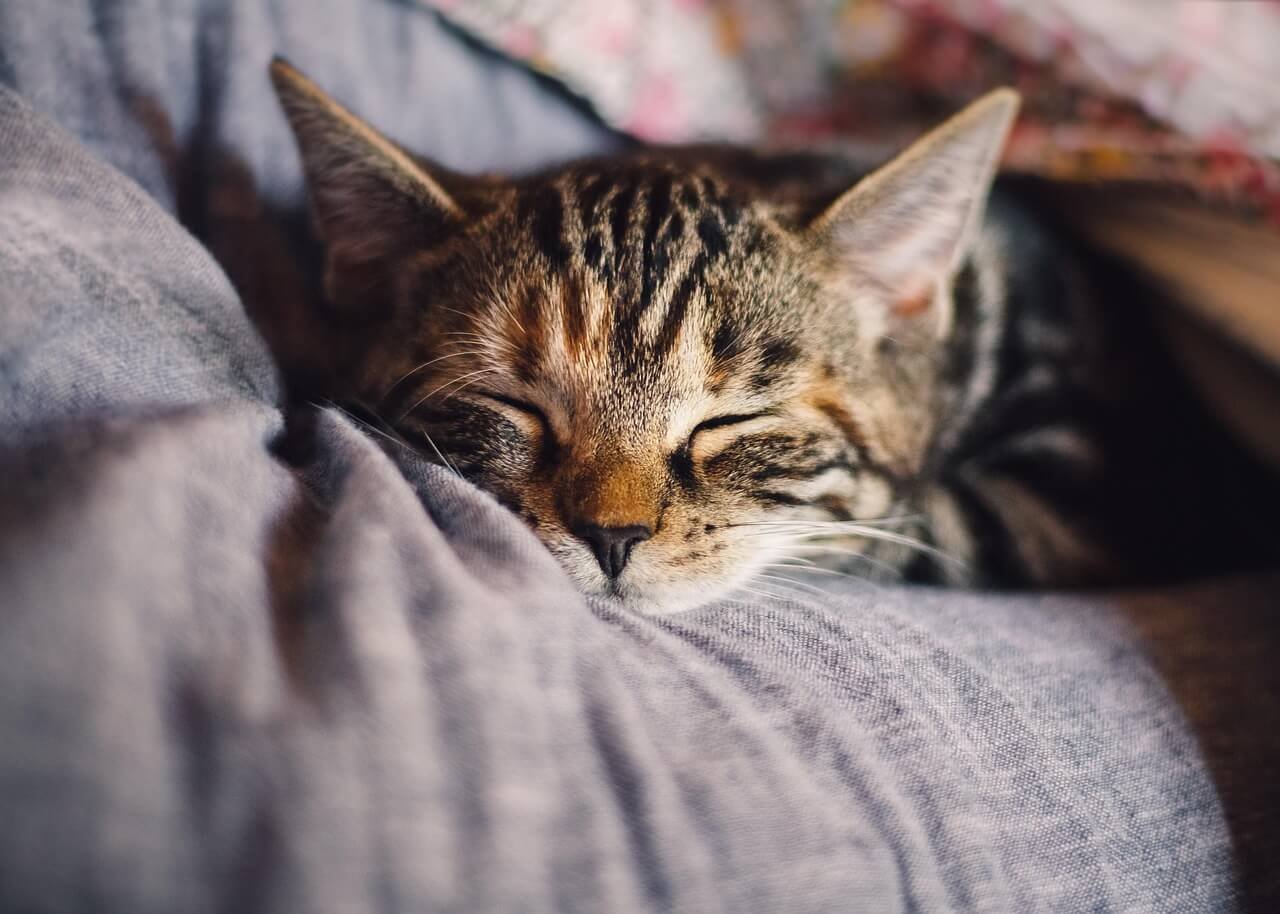Why Is My Cat Suddenly a Picky Eater? Understanding Your Feline’s Changing Preferences
Cats are known for their independent and sometimes finicky nature, but what happens when your once food-loving feline suddenly becomes a picky eater? A sudden change in eating habits can be concerning for pet owners, as it may signal anything from minor preferences to underlying health issues. While some cats are naturally selective about their meals, others may develop pickiness due to environmental changes, stress, or medical conditions. In this blog post, we’ll explore the reasons behind your cat’s newfound pickiness, how to identify potential problems, and practical tips to encourage healthy eating habits. Let’s uncover why your cat might be turning their nose up at dinner and how you can address it effectively.
Common Reasons Why Cats Become Picky Eaters
A cat’s sudden reluctance to eat can stem from various factors, ranging from physical health to emotional well-being. Here are some common reasons why your cat might have become a picky eater:
Boredom with Food
Eating the same food every day can lead to monotony, causing your cat to lose interest in their meals.Dental Issues
Painful teeth or gums can make chewing uncomfortable, discouraging your cat from eating.Stress or Anxiety
Changes in routine, new pets, or moving homes can stress your cat, affecting their appetite.Underlying Health Conditions
Conditions like gastrointestinal disorders, kidney disease, or infections may reduce your cat’s desire to eat.Food Quality or Texture Changes
Switching brands or formulas without a gradual transition can upset your cat’s sensitive palate.
Understanding these reasons can help you pinpoint the cause of your cat’s pickiness. Observing other behavioral changes alongside their eating habits is key to determining whether the issue is temporary or requires veterinary attention.
Signs That Your Cat’s Picky Eating May Be a Problem
While occasional pickiness is normal, certain signs indicate that your cat’s eating habits could be linked to a more serious issue. Here’s what to watch for:
Weight Loss
A noticeable drop in weight suggests your cat isn’t consuming enough nutrients to stay healthy.Vomiting or Diarrhea
Digestive issues accompanying picky eating may point to food intolerance or illness.Lethargy or Weakness
If your cat seems unusually tired or uninterested in activities, it could be a sign of an underlying health problem.Avoidance of All Foods
Refusing every type of food, including favorites, is a red flag that warrants immediate attention.Behavioral Changes
Increased aggression, hiding, or vocalizing during mealtime may indicate discomfort or pain.
These signs should not be ignored, as they could indicate a medical condition requiring professional care. Always consult a veterinarian if your cat’s picky eating persists or worsens.
Check this guide 👉Why Does My Cat Eat So Fast? Best 7 Expert Tips!
Check this guide 👉Why Does My Cat Eat Everything? Best 7 Behavior Tips!
Check this guide 👉Why Does My Cat Eat Too Fast and Throw Up? Best 7 Tips!

Reasons for Picky Eating in Cats | What You Can Do About It |
|---|---|
Boredom with food | Rotate flavors or textures to keep meals exciting |
Dental issues | Schedule a vet check-up for oral health |
Stress or anxiety | Identify and minimize stressors in their environment |
Underlying health conditions | Consult a vet for diagnosis and treatment |
Food quality or texture changes | Transition gradually to new foods |
Tips for Encouraging Your Cat to Eat Again
If your cat has become a picky eater, there are several strategies you can try to reignite their interest in food. Here are some practical tips:
Offer Variety
Introduce different flavors, textures, or types of food (wet, dry, or raw) to stimulate their appetite.Warm Up Their Food
Slightly heating canned food can enhance its aroma, making it more appealing to your cat.Create a Calm Feeding Environment
Ensure their feeding area is quiet, clean, and free from distractions or competition from other pets.Stick to a Routine
Feed your cat at the same times each day to establish consistency and predictability.Use Positive Reinforcement
Reward your cat with praise or treats when they eat, reinforcing positive associations with mealtime.
By experimenting with these approaches, you can find what works best for your cat. Patience and persistence are key, as it may take time for them to adjust.
Preventing Picky Eating in the Future
Preventing your cat from becoming a picky eater involves proactive measures to maintain their interest in food and overall health. Here are some tips to avoid future issues:
Rotate Food Regularly
Introduce variety early on to prevent boredom and ensure your cat is open to trying new foods.Monitor Portion Sizes
Overfeeding can lead to obesity, while underfeeding can cause nutritional deficiencies—balance is crucial.Schedule Regular Vet Check-Ups
Routine exams help catch dental or health issues before they impact your cat’s eating habits.Avoid Sudden Diet Changes
Gradually transition between foods over 7–10 days to avoid upsetting your cat’s digestive system.Keep Stress Levels Low
Minimize disruptions to your cat’s environment and provide safe spaces where they feel secure.
Taking these preventive steps can help ensure your cat remains a healthy and enthusiastic eater. A little effort now can save you from bigger challenges down the road.
Fun Facts About Cats and Their Eating Habits
Cats are fascinating creatures, and their eating habits often reflect their unique personalities and instincts. Here are some fun facts about feline eating behaviors:
Cats Are Obligate Carnivores
Unlike dogs, cats require a diet high in animal protein to thrive, as they cannot synthesize certain nutrients on their own.Whiskers Play a Role in Eating
A cat’s whiskers help them detect the depth and size of their food bowl, which can influence their comfort while eating.They Prefer Small, Frequent Meals
In the wild, cats hunt and eat small prey throughout the day, so they naturally gravitate toward multiple small meals rather than one large one.Smell Trumps Taste
Cats rely heavily on their sense of smell to determine whether food is appetizing, as they have fewer taste buds than humans.Some Cats Are Neophobic
Many cats are hesitant to try new foods due to a natural instinct to avoid potentially harmful substances.
These fun facts highlight the complexity of feline eating habits and remind us why understanding your cat’s preferences is so important. Every cat is unique, and their quirks make them all the more lovable.
Common Mistakes Owners Make When Dealing with Picky Eaters
When trying to address picky eating in cats, well-meaning owners sometimes make mistakes that can worsen the situation. Here are some common pitfalls to avoid:
Switching Foods Too Quickly
Abruptly changing your cat’s diet can upset their stomach and create aversions to new foods.Overusing Treats
Offering too many treats can fill your cat up and reduce their interest in regular meals.Forcing Unwanted Food
Insisting your cat eat something they dislike can lead to stress and further resistance at mealtime.Ignoring Dental Health
Failing to check for dental issues may result in ongoing discomfort that affects their appetite.Not Consulting a Vet Early Enough
Delaying veterinary care when picky eating persists can allow underlying health problems to worsen.
By avoiding these mistakes, you can create a positive eating experience for your cat and address any issues more effectively. A thoughtful approach goes a long way in managing picky eating.
Ways to Make Mealtime More Exciting for Your Cat
If your cat has become a picky eater, making mealtime more engaging can reignite their interest in food. Here are some creative ways to add excitement to their dining routine:
Use Puzzle Feeders
Interactive feeders challenge your cat mentally and physically, turning mealtime into a rewarding game.Experiment with Textures
Offer a mix of crunchy kibble, soft wet food, or even raw options to cater to your cat’s texture preferences.Add Tasty Toppers
Sprinkle a bit of tuna juice, chicken broth, or freeze-dried meat on top of their food to enhance flavor.Create a Feeding Schedule
Establish set meal times instead of free-feeding to build anticipation and structure around eating.Incorporate Play Before Meals
Engage your cat in a short play session before feeding to mimic hunting behavior and stimulate hunger.
These strategies can transform mealtime from mundane to exciting, encouraging your cat to enjoy their food again. By catering to their instincts and preferences, you’ll strengthen your bond and keep them happy and healthy.
Frequently Asked Questions About Cats Becoming Picky Eaters
Why did my cat suddenly stop eating their favorite food?
Changes in taste, smell, or texture, as well as health issues, can cause cats to reject even their preferred meals.
How long can a cat safely go without eating?
Cats should not go more than 24–48 hours without food, as prolonged fasting can lead to serious health complications like hepatic lipidosis.
Should I force-feed my picky cat?
No, force-feeding can increase stress and aversion to food; instead, consult your vet for guidance.
Can stress really affect my cat’s appetite?
Yes, stress or anxiety can significantly impact a cat’s willingness to eat, so addressing the root cause is essential.
What should I do if my cat refuses all food?
If your cat stops eating entirely, seek veterinary care immediately to rule out serious health concerns.
Supporting Your Cat Through Picky Eating Phases
Dealing with a suddenly picky eater can be frustrating, but understanding the reasons behind their behavior is the first step toward finding a solution. Whether it’s addressing health concerns, reducing stress, or introducing new foods, there are many ways to encourage your cat to eat happily again. Remember, patience and observation are crucial—your cat’s preferences and needs may evolve over time. By staying attentive and proactive, you can ensure they remain healthy and content. Ultimately, fostering a positive relationship with food will strengthen your bond and bring peace of mind to both you and your feline companion. After all, a happy cat makes for a happy home!
Do Cats Have Taste Buds? Best 7 Expert Tips! – Discover how cats experience flavors and why their taste is so unique.
Do Dogs Have Taste Buds? Best 7 Expert Tips! – Discover how dogs experience taste, their preferences, and what it means for their diet and health.
Can Cats Taste Sweet? Best 7 Expert Tips! – Discover why cats can’t taste sweetness, how it affects their diet, and tips to keep them healthy and happy.
Can Dogs Taste Sweet? Best 7 Expert Tips! – Discover how dogs perceive sweetness, which foods are safe, and tips to manage their sweet cravings responsibly.





